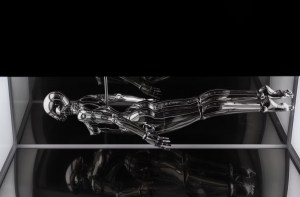Since the 1980s, the Netherlands has seen a steady progressive trend, with society becoming increasingly open to progressive values such as same-sex marriage and other social reforms. This progressive wave has often coincided with periods of rising prosperity: when people feel secure and stable, they have more space to focus on broader questions like environmental sustainability and personal identity.
However, since 2021/2022, this progressive trend has stopped and now there are signs of a shift. In addition to traditional conservative groups, new segments of society are adopting more conservative values. In this article, we’ll dive into why Dutch society, and Generation Z in specific, is becoming more conservative on some topics.
Main drivers for the adoption of more conservative values
Literature on this topic mainly points to two drivers for societies to adopt more conservative values. One source of this conservative shift is a widespread sense of economic insecurity. Young adults today face challenges such as precarious work contracts and a difficult housing market. Compared to previous generations, who for a long time had it better than their own parents, there is a bigger chance that Gen Z’ers might have it less good compared to their own parents. Owning a home in the Netherlands now costs nine years’ worth of income; it used to be four.
Alongside economic factors, cultural changes play a major role. Dutch society has become more secular over the years and has made space for a more individualized society in its place. This led to more personal freedom but less guidance on how to live well. For many young people, especially in their identity forming years, this abundance of choice can feel overwhelming.
The more uncertain our economy and lives are, the more likely people are to adopt conservative values-focusing on survival and preserving what they have, rather than embracing change. When previously established “fixed truths”-such as genders-are increasingly being questioned, it can provoke resistance as it creates even more uncertainty and unclarity. This feeling of constant change is amplified by populist rhetoric that stoke up people’s fear of loss and nostalgia for a more predictable past
The Netherlands has become more conservative, but… there’s a but
The Dutch have indeed become more conservative. Sociologists Niels Spiering and Marcel Lubbers at Radboud University, have conducted research on the rise of conservative attitudes among the Dutch population. The Dutch have, on average, become more conservative on issues such as gender, homosexuality, and medical-ethical topics like abortion and euthanasia. This trend is strongest regarding LGBTQ+ issues and is particularly visible among young men aged 18 to 30 — although, overall, they still tend to be progressive. The main reasons for this conservative shift cannot be explained solely by religious beliefs. Even among non-religious groups, an increase in conservatism can be observed. Societal factors, such as the need for safety and stability, may play a role.
However, it is crucial to mention: despite the stagnation of progressive momentum, this does not mean a wholesale return to traditional conservatism. As sociologist Quita Muis points out, society does not simply lose all the progress it has made; a step back may occur, but people do not become entirely anti-progressive overnight. The changes are nuanced: progress on many social issues remains, but new uncertainties are driving a desire for stability and clearer boundaries, especially among young people. The conservative turn is real, but it is not absolute, and it is shaped by the unique pressures and uncertainties of our time.

Author
Kim Pillen
Share the signal.











